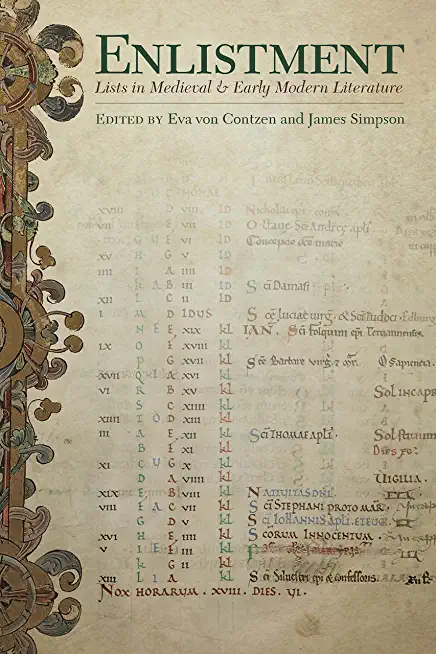
description
2Bestiaries. Lapidaries. Lunaries. Inventories and household vocabularies. Lists are everywhere in medieval and early modern texts--evidence of the need to manage and order knowledge and experience. Yet until now, listing as a formal practice has received scant scholarly attention. In Enlistment, foremost medievalists and early modernists from both the Anglo-American and German traditions investigate the humble list as a platform for better understanding how and why lists captivated period audiences. From epic catalogues of trees in Geoffrey Chaucer and Edmund Spenser to genealogies and the names of the divine, the lists in question come from a variety of periods, languages, and genres. Throughout, contributors demonstrate how lists have the curious capacity to challenge our categories of thinking and ordering of the world. The lists we encounter in medieval and early modern literature can thus be seen as seismographs of cultural knowledge and also as testing grounds for defining the ineffable, or unfathomable, or that which would be dangerous if otherwise expressed. Contributors: Suzanne Conklin Akbari, Ingo Berensmeyer, Eva von Contzen, Alex Davis, Andrew James Johnston, Wolfram R. Keller, Alexis Kellner Becker, Kathryn Mogk Wagner, Martha Rust, James Simpson
member goods
No member items were found under this heading.
Return Policy
All sales are final
Shipping
No special shipping considerations available.
Shipping fees determined at checkout.







